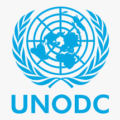Consultant – Wildlife seizure data management support
Vienna, Austria
JOB DETAIL
Result of Service
The consultant will be responsible for carrying out assessments and for making proposals regarding the following specific topics – in collaboration with the wildlife crime research officer and the wildlife seizures database manager: Development of new data processing protocols and data quality/entry requirements: • Development of minimum data quality requirements for data entry into the database, as well as protocols and standard operating procedures for data processing by reviewing existing practices, relevant documents, and adjusting these for wildlife seizure data; • Using the wildlife seizure dataset, test the minimum data quality requirements, protocols and standard operating procedures in order to further refine and improve these; • Come up with an exhaustive list of data consistency checks for impossible/improbable field combinations (e.g. “rhino feathers” or “tones of wildlife commodities reported as concealed in personal luggage”); • Identify data discrepancies in the database; • Make recommendations on how to store aggregates (e.g. operations) in the database; • Support the database manager with deduplication processes (e.g. checking duplicates identified; based on the findings, making recommendations for adjusting the deduplication process); • Develop parameters for an outlier detection mechanism / procedure. Conduct extensive core data checks and updates, including: • Assist with ensuring that non-English information is transformed and categorized correctly and fed back to relevant codes/machine learning approaches; • Conduct some top-line data analyses, mainly focusing on select commodity groups to be agreed in consultation with supervisor, with the aim of identifying data issues/inconsistencies and feed back to relevant codes/machine learning approaches. As part of this process, assist with identifying outlier values. • Cross-check data reviews conducted in the past with the current dataset to ascertain if amendments to all relevant records have been implemented; • Examine potential for additional analytical classification of the data, for example to differentiate different demand clusters; • Address other data issues identified through the work above – as agreed with the supervisor. Exploring and improving the linking of the wildlife seizure data to other datasets: • Activities could include management of the standardized seizure index for analyses (LEMIS-based), assessing how to deal with differences in taxonomy used in the IUCN Red List and CITES nomenclature. Reporting tendencies/data quality assessments: • Support assessing (geographic and species) data gaps and propose strategies to address these; • Carry out assessments of reporting trends (quantitative and qualitative, e.g. to describe how reporting by countries/regions changed over time) and assess which reporting countries require training on data collection/reporting, along with making country-specific recommendations for improvements/capacity building. Other activities: • Contribute to the methodological discussions on data standards and conversion factors, in coordination with external partners; • Participate in meeting with external partners; • Participate in training events (online) on data reporting; • Based on the activities carried out, formulate recommendations for improving the data collection template/guidelines (CITES).
Work Location
Home-based with travels to United Kingdom (three days in October/November)
Expected duration
23.09.24 – 23.03.25 (6 months)
Duties and Responsibilities
UNODC manages a wildlife seizure database. The data forms the basis for some of the analyses in the World Wildlife Crime Report. This assignment aims to improve the quality of data in this database and to strengthen procedures for data entry and validation. The consultant, under the supervision of the Wildlife Crime Research Officer, will be responsible for working with the wildlife seizures database manager to improve the data quality of wildlife seizure data managed by UNODC, among others, by helping develop minimum data quality requirements, protocols and standard operating procedures for data controls and checks, and carrying out data consistency checks on the dataset. The consultant will also provide general support to strengthening various aspects of the dataset, such as price information, linkages to other databases, for instance the IUCN Red List of Threatened Species.
Qualifications/special skills
An advanced university degree (master’s degree or equivalent) in natural sciences or data science, information technology, economics, or closely related field is required. A first level university degree in similar fields (bachelor’s degree or equivalent) in combination with two additional years of qualifying experience may be accepted in lieu of the advanced university degree. • A minimum of 5 years relevant experience is required, which could come from a combination of the following: data processing and data management (ideally in the environmental sector), data analysis and research (ideally related to wildlife trafficking/trade). • Sound knowledge of the illegal wildlife trade and expertise on the Convention on International Trade in Endangered Species of Wild Fauna and Flora is required • Demonstrated analytical, research, and communication skills are required and good planning and organizational skills are required; • Proficiency in Microsoft Excel is required. • Experience in SQL and/or programming in R/other statistical software is desirable. Work experience in the field of wildlife trade seizure data management and/or analysis is desirable.
Languages
English and French are the working languages of the United Nations Secretariat. For this position, fluency in English, with excellent drafting and communication skills, is required. Knowledge of another United Nations official language is an advantage.
Additional Information
Not available.
No Fee
THE UNITED NATIONS DOES NOT CHARGE A FEE AT ANY STAGE OF THE RECRUITMENT PROCESS (APPLICATION, INTERVIEW MEETING, PROCESSING, OR TRAINING). THE UNITED NATIONS DOES NOT CONCERN ITSELF WITH INFORMATION ON APPLICANTS’ BANK ACCOUNTS.

